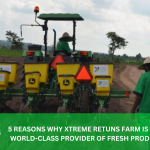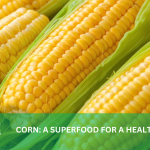Farming isn’t just about planting seeds and waiting for harvest. It’s a science, an art, and a business. Whether you’re a small-scale farmer or running a large commercial farm, adopting the right techniques can mean the difference between a struggling season and a bountiful harvest. The goal? Higher yields, healthier crops, and a farming approach that keeps the land fertile for generations to come.
Here are eight best farming practices for great yield:
- Take Care of Your Soil: Your soil is the foundation of your farm. If it’s healthy, your crops will be too. Regular soil testing helps you understand what nutrients are missing, and adding organic matter like compost or manure can boost fertility. Avoid over-tilling, as it can break down soil structure and lead to erosion.
- Rotate and Diversify Your Crops: Growing the same crop on the same land continuously depletes soil nutrients and increases vulnerability to pests and diseases. Crop rotation and diversification help maintain soil fertility, break pest cycles, and reduce the risk of plant diseases. Growing the same crop will deplete nutrients and invites pests. Rotate different crops each season to maintain soil health and keep diseases in check.
- Use Integrated Pest Management (IPM): Over-reliance on chemical pesticides harms beneficial insects and leads to resistance in pests. IPM combines biological control, mechanical methods, crop rotation, and the use of resistant crop varieties to manage pests effectively while reducing chemical use with zero damage to the land. Pesticides can also kill off good insects and harm the environment.
- Embrace Modern Agricultural Tech: Using technology such as GPS, drones, and soil sensors will help you optimize the use of inputs like water, fertilizers, and pesticides. This reduces waste, lowers costs, and enhances crop yields by ensuring that resources are applied only where needed.
- Practice Advanced Water Conservation Techniques: Efficient water use is crucial for sustainable farming. Employ irrigation techniques like drip irrigation, rainwater harvesting, and mulching help retain moisture, reduce water wastage, and improve crop resilience during dry periods. Proper irrigation scheduling prevents overwatering and under-watering. Drip irrigation directs water straight to the roots, reducing waste and mulching around crops can also help keep moisture in the soil and prevent excessive evaporation.
- Invest in Quality Seeds: Using high-quality seeds and disease-resistant plant varieties improve germination rates, reduce input costs, and enhance crop yields. Plant seeds suited to your local climates for the best results.
- Practice Organic and Sustainable Farming System: Too many chemicals can lead to long-term soil damage and unhealthy crops. Reducing synthetic fertilizers and pesticides minimizes environmental pollution and enhances biodiversity. Organic farming techniques such as composting, using natural fertilizers, and relying on biological pest control help maintain soil fertility and produce healthier food.
- Practice Climate-Smart Farming: The threat of climate change is increasing overtime. This poses a threat to agriculture, farmers must adopt climate-smart techniques such as drought-resistant crops, agroforestry, and conservation tillage to enhance resilience against extreme weather conditions.
CONCLUSION
Successful farming isn’t just about what you plant, it’s about how you treat the land, manage resources, and think ahead.
At Xtreme Returns Farms, we diligently follow these best practices to achieve better yields and a more sustainable future. We prioritize soil health, efficient resource use, and eco-friendly methods. Our goal is securing food production for future generations. Trust us for fresh produce ready for delivery nationwide
Contact us today for fresh and organic maize, cassava and plantains produce for retail and wholesale us. Call 09030001295 to order now.



